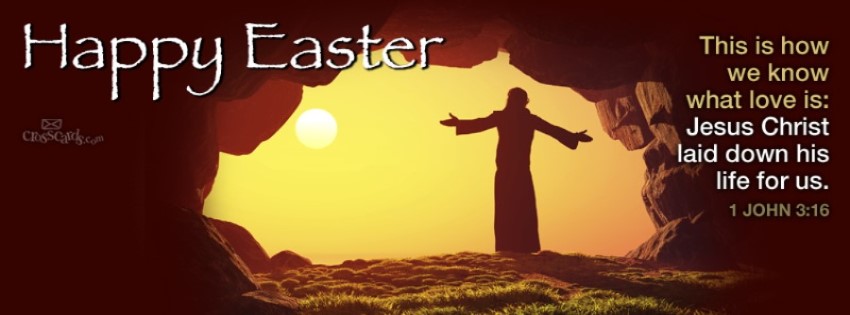
For those who do not have the opportunity of reading Father Jim Bacik's meditations, I took the liberty of sharing his Easter Mediation (2018). May the liberating power of Easter be with you.
Sunday Meditation
Easter Sunday B Cycle April 1, 2018
James J. Bacik
Reading: 1 Corinthians 5: 6b-8 (optional)
On this great feast of Easter, the most important liturgical celebration of the year, the epistle interprets the resurrection of Christ from the perspective of the Exodus event commemorated at the Jewish Passover meal. By the time of Jesus, the Jews celebrated their liberation from bondage in Egypt with a sacred meal that included unleavened bread and roasted lamb. As part of the Passover celebration, pious Jews disposed of the old bread leavened by yeast, which they considered sinister and corrupting, and baked new unleavened bread, symbolizing a new purified life. The roasted lamb reminded them of the Exodus when God commanded the Israelite families in Egypt to slaughter a lamb, sprinkle the blood on their doorposts, roast the lamb and eat it in haste, ready to depart Egypt (Ex 12: 1-30).
Drawing on this symbolism, Paul instructs us: "Clear out the old yeast, so that you may become a fresh batch of dough." Since Christ, our paschal lamb, has been sacrificed, we should celebrate, not with the old yeast of "malice and wickedness," but with the "unleavened bread of sincerity and truth."
By linking Easter and the Exodus, the epistle invites reflection on the liberating power of the paschal mystery, the death and resurrection of Christ. In Luke's Gospel, Jesus began his public ministry by presenting himself as a liberator who will free the captives and preach the good news to the poor. In his personal interactions, he freed individuals from their fears, guilt and isolation. He healed lepers confined to the outskirts, freeing them to return to their families and friends. He liberated women from their social isolation and included them in his preaching and mission. His preaching called for forgiveness and reconciliation that breaks the cycle of violence and recrimination. Through his death and resurrection, Christ extended his liberating power to all people, in all times and all places.
By liberating us from all that enslaves us, Christ freed us for personal growth, for serving others, for contributing to society, for promoting the common good, and for extending the reign of God in this world.
Easter is a joyous feast because it proclaims the ultimate defeat of all the forces that impede, limit and confine the human spirit and celebrates the final triumph of Christ's liberating grace, which brings us full human development. Christ, the paschal lamb, has given us a fresh start so we can put aside the enslaving patterns of the past and enjoy the new life of authentic freedom.
We can imagine people who can benefit from this liberating message: the married woman who still feels guilty over a teenage abortion; the collegian who is struggling to escape the drug culture; the executive who is caught up in the whirlwind of frenetic activity; the social worker who is overwhelmed by an excessive case load; the citizen fighting cynicism over partisan polarization; the parishioner who feels unfairly constrained by the pastor and his staff; and the pastor who feels burdened by administrative responsibilities. Human existence is inevitably limited and constrained, which means the Resurrection, with its liberating power, is good news for everyone, including ourselves.
In what specific way can the Easter celebration be liberating for me?